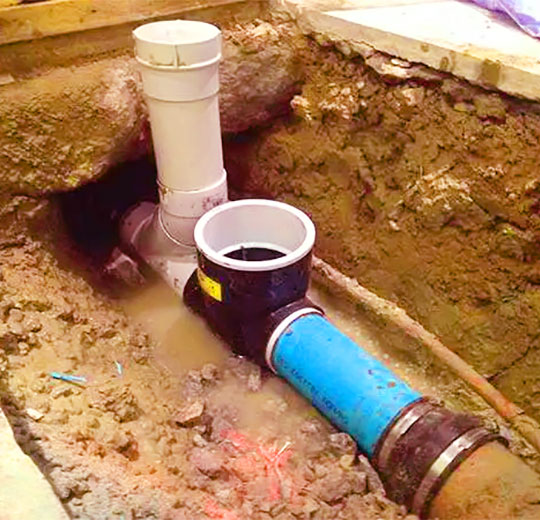Installing the backwater valve should be done beneath your basement's floor, near the location of your home's main sanitary sewer. What transpires in your basement when untreated sewage begins to bubble or gurgle up through the floor drains? Have you ever thought about the steps you should take to safeguard your property against these flooding risks? If you are a homeowner, you undoubtedly take great pride in the upkeep you do to keep your house safe from unforeseen circumstances. But most homeowners don't think about fixing their plumbing system until there is a flood or wastewater that rises to the floor, causing damage to the house.
It can seriously harm your health in addition to ruining your house. Fortunately, installing a backwater valve can help avoid this problem. Installing a backwater valve is an added feature that gives you comfort in knowing that your house is secure and that water damage has been repaired. It is essential to treat wastewater.

 Nikhil PotlacheruvuExcellent service! Mike was very punctual and professional. What I really loved was the quick turn around. I would definitely recommend their business.
Nikhil PotlacheruvuExcellent service! Mike was very punctual and professional. What I really loved was the quick turn around. I would definitely recommend their business. Mtg 813Excellent work done by Mike from Blueflow. Extremely professional and punctual with a capital P. I noticed he pays close attention to detail and is willing to go the extra mile to make sure things get done properly. Would recommend you contact Mike at Blueflow for your plumbing needs.
Mtg 813Excellent work done by Mike from Blueflow. Extremely professional and punctual with a capital P. I noticed he pays close attention to detail and is willing to go the extra mile to make sure things get done properly. Would recommend you contact Mike at Blueflow for your plumbing needs. Oliver OcsenasExcellent professionalism. Really went the extra mile to make sure everything was done properly and there was no mess at all. I would recommend Mike from Blueflow for any plumbing service you're considering.
Oliver OcsenasExcellent professionalism. Really went the extra mile to make sure everything was done properly and there was no mess at all. I would recommend Mike from Blueflow for any plumbing service you're considering. Michael SmithI received phenomenal plumbing service from Michael at Blueflow Plumbing and Drain. This is my second time using his service. I was very impressed by his professionalism and the time and care he took to ensure that the work was properly done. I would recommend this business to anyone. Thank you for your service Michael, you are my go-to person.
Michael SmithI received phenomenal plumbing service from Michael at Blueflow Plumbing and Drain. This is my second time using his service. I was very impressed by his professionalism and the time and care he took to ensure that the work was properly done. I would recommend this business to anyone. Thank you for your service Michael, you are my go-to person. Roberto VitaAwesome experience! Came out and helped us out on short notice! Would highly recommend!
Roberto VitaAwesome experience! Came out and helped us out on short notice! Would highly recommend! Sherryll-Ann AlexanderExcellent customer service and great work. Not messy at all and cleaned up after the service. I highly recommend Blueflow Plumbing and Drain
Sherryll-Ann AlexanderExcellent customer service and great work. Not messy at all and cleaned up after the service. I highly recommend Blueflow Plumbing and Drain Rabia BatoolExcellent experience and a very professional attitude i will recommend blueflow plumbing and drain ,stop looking around and go with them !
Rabia BatoolExcellent experience and a very professional attitude i will recommend blueflow plumbing and drain ,stop looking around and go with them !